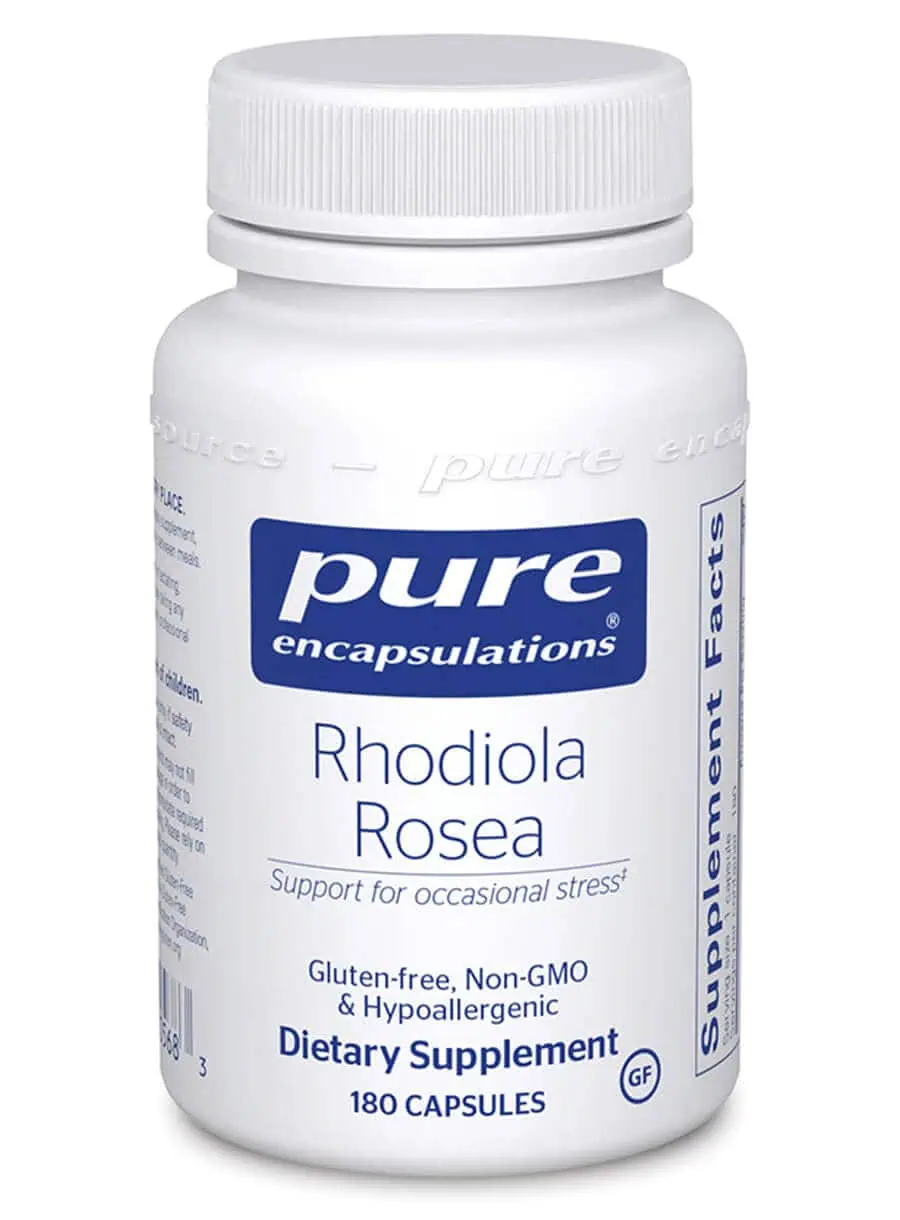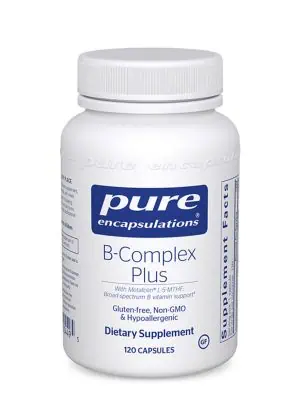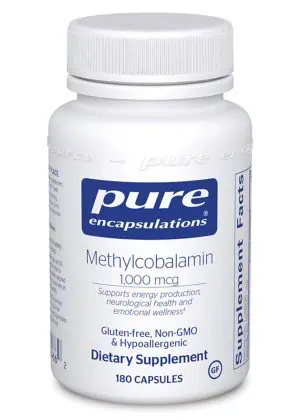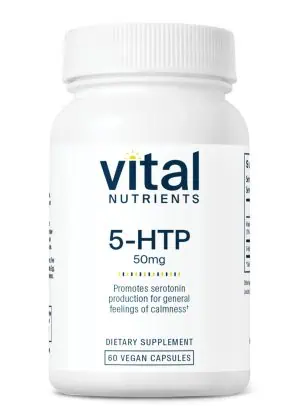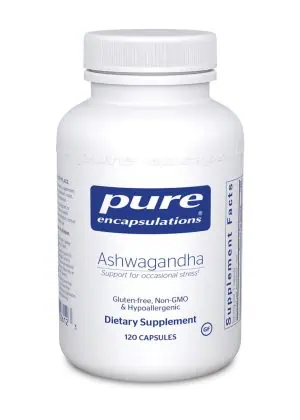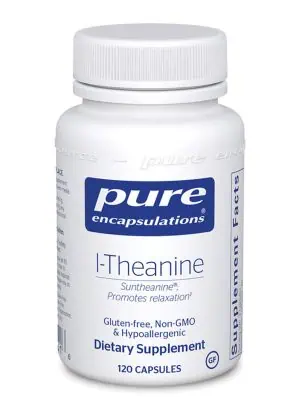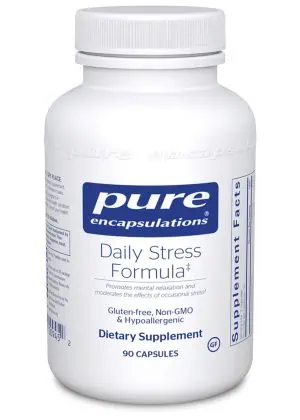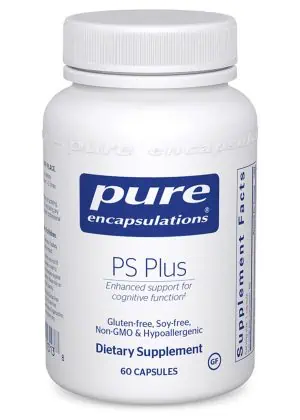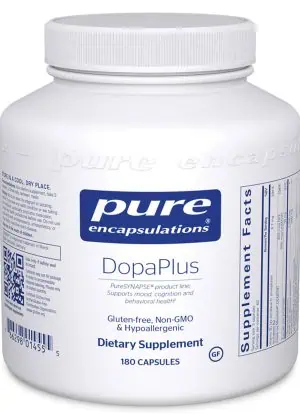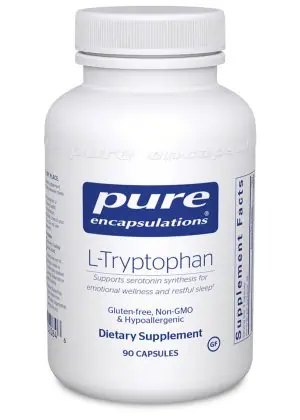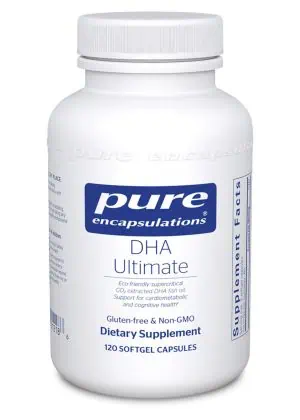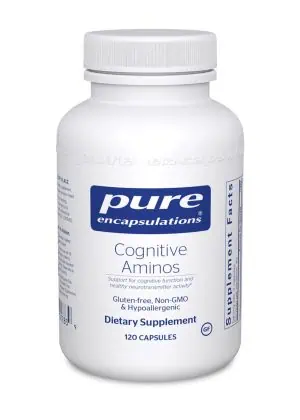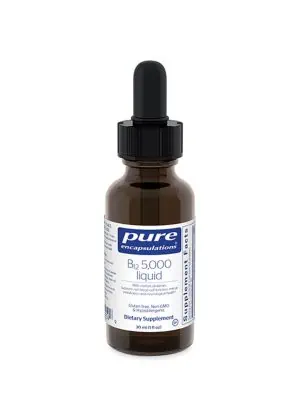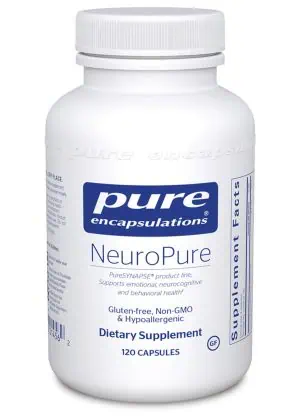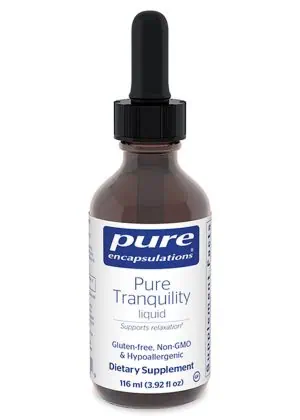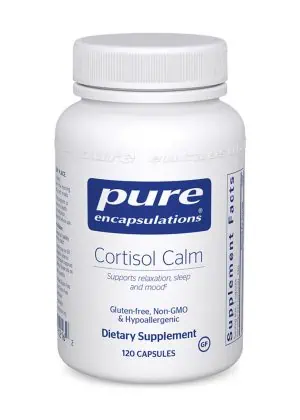Rhodiola Rosea by Pure Encapsulations
Starting at $23.50
Starting at $23.50

Rhodiola: Don’t Leave Home Without It…
Rhodiola rosea is generally used for emotional support as well as adrenal health. Known as a adaptogen, rhodiola rosea works for some women who experience stress during their cycle or through menopause. Rhodiola may also assist with mental performance by increasing concentration and help to manage stress related fatigue. Also use for endurance and to increase work capacity, some studies suggest that using rhodiola can benefit coordination.
Rhodiola Rosea
Moderates occasional physical and emotional stress
Rhodiola rosea, a Siberian plant also known as Golden root, has been used traditionally for hundreds of years in countries including Russia and Siberia. Identified as an adaptogen through extensive research, Rhodiola rosea has demonstrated a number of versatile properties. In particular, this includes helping to moderate the effects of occasional physical and emotional stress. Recently, a double blind cross-over study examined the effect of Rhodiola rosea on mental performance in healthy physicians. The results suggest that rhodiola may help to moderate fatigue under stressful conditions and to support short-term memory and concentration.
In a separate, double blind, placebo-controlled pilot study, Rhodiola rosea provided support for physical and mental stress in students. Promoting the activity of neurotransmitters such as serotonin, norepinephrine and dopamine plays a part in this herb’s ability to enhance cognitive functioning, memory and attention. Rhodiola rosea may also promote energy metabolism. In a university study, it enhanced physical work capacity and improved recovery time for individuals participating in high intensity exercise. In a separate study, this extract was shown to promote endurance and coordination in athletes. Animal studies indicate that this extract may also play a role in supporting healthy heart muscle function and blood flow.
One proposed cardioprotective mechanism is maintaining healthy catecholamine release in the myocardium. The extract also appears to maintain healthy adrenal catecholamine activity during stress. Furthermore, Rhodiola rosea has demonstrated the potential to support liver function, glucose and insulin metabolism, and antioxidant and cellular protection. Rhodiola may be contraindicated for individuals taking adrenergic-blocking and antiarrhythmic medications.
Pure Encapsulations Rhodiola Rosea is standardized to contain 3% total rosavins and a minimum of 1% salidrosides, providing broad-spectrum adaptogen support for occasional mental and physical stress, cardiovascular and metabolic function, and cellular health.
Product Ingredients
| Ingredients | AMT | %DV |
|---|---|---|
| rhodiola (Rhodiola rosea) extract (root)(standardized to contain 3% total rosavins and min. 1% salidrosides) | 100 mg | - |
Why Buy From Us?As a trusted family- and employee-owned company for over 25 years, we've shipped more than 1 million packages, empowering our customers with expert knowledge, guiding their wellness journeys, while delivering unparalleled customer service.

Welcome to Pure Prescriptions
I founded Pure Prescriptions after overcoming Cancer at age 29, a battle that taught me the power of natural supplements and inspired me to make professional-grade, doctor-only brands accessible online—pioneering the industry over 25 years ago.
Today, still a family- and employee-owned company, we've shipped over 1 million packages, empowering countless wellness journeys with science-backed, U.S.-manufactured vitamins and supplements meticulously curated for superior quality and optimal results. Our real health experts provide personalized recommendations without upsells or gimmicks—just genuine support tailored to your needs.
Not a customer yet? We'd be thrilled to earn your trust and guide you toward vibrant health.
Sincerely,
Helpful Links:
Contact Us | LIVE Chat | Vitamin Quiz
The Pure Prescriptions Difference
When you choose Pure Prescriptions, you become part of our caring community. We’re committed to enhancing your wellness with personalized service, expertly selected products, and a dedication to your health & happiness.


Related products
Get Notified When Back In Stock
Verify you are Human:
-
- Vitamin Quiz
- Deals
- Shop
- Brands
- Shop by Manufacturer Brand
- Shop by Manufacturer Brand
- About
- Login





